How two Cities: Skylines modders turned hobbyist work into life-changing careers
A road to full-time development, rediscovering art and battling depression.
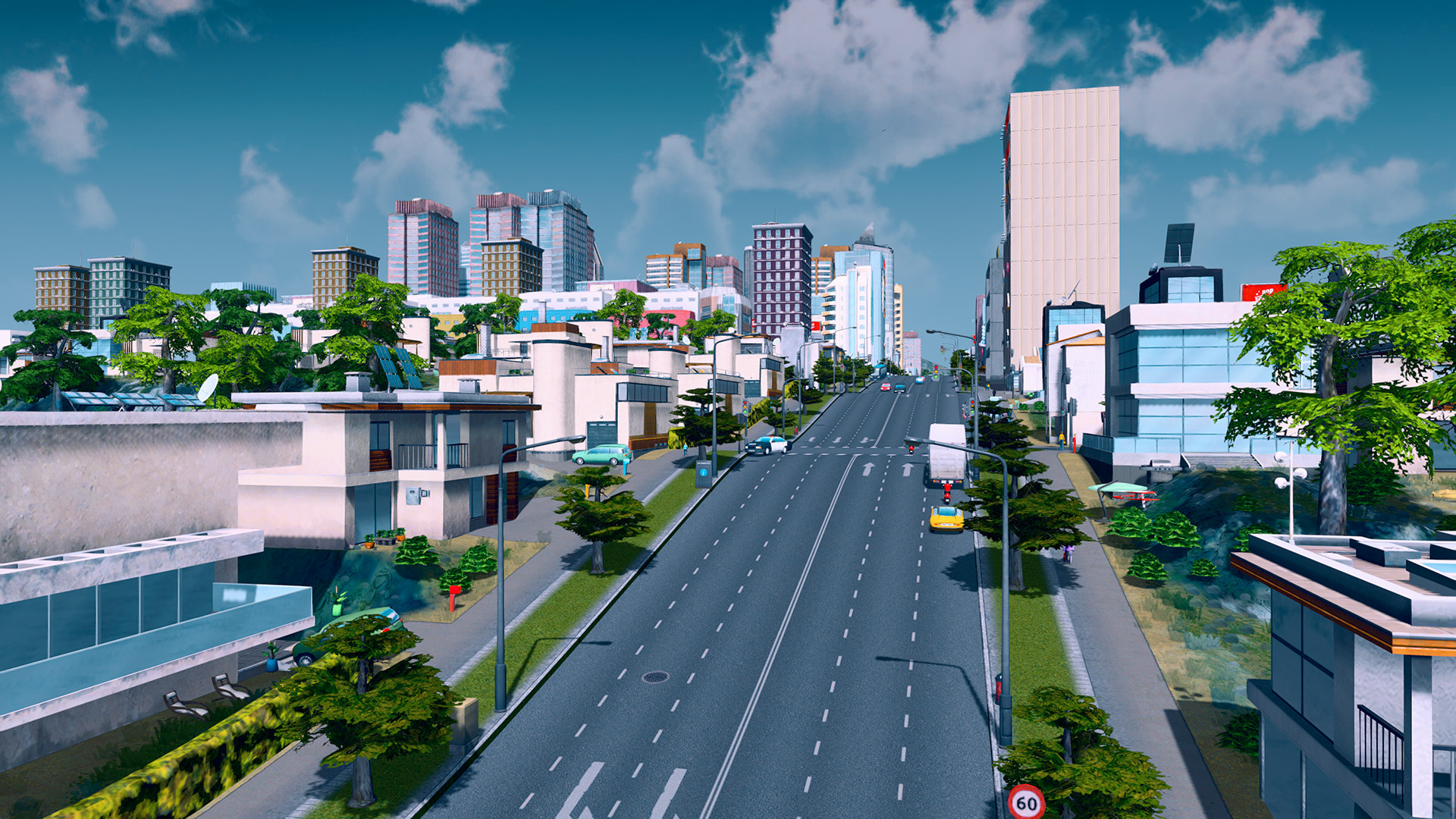
"It's insane," says Alexander J. Velicky. "It's difficult to describe what it's like in comparison to what I thought it would be. Imagine if you had never seen or heard of a rollercoaster and someone was trying to describe what it was like to you. You could try to imagine what it would be like, but then when you actually ride on one you'd be completely surprised."
Arguably the most famous modder-turned-developer of recent times, Velicky is talking about full-time game development. Aged just 19, he spent a year building the sprawling Skyrim mod Falskaar as a means of showcasing his talents, and in turn received a wealth of press coverage. He now works full-time at Bungie after securing a job off the back of his hard work—his resume also includes the ambitious Fallout 3 mod Project Genesis—and is proud of his modest roots. "If one thing is for certain it's that it has given me some incredible perspective when I play and look at other games coming out in the industry."
Today, Colossal Order and Paradox's city-building sim Cities: Skylines has one of the most prolific modding communities across all genres. Its Steam workshop page alone boasts well over a hundred thousand mods, and the number of keen enthusiasts flooding its forums is steadily growing with each passing update, expansion and portion of DLC. While for the majority modding serves as a vehicle to make existing games better, more cases like Velicky's distinguished example are coming to the fore.
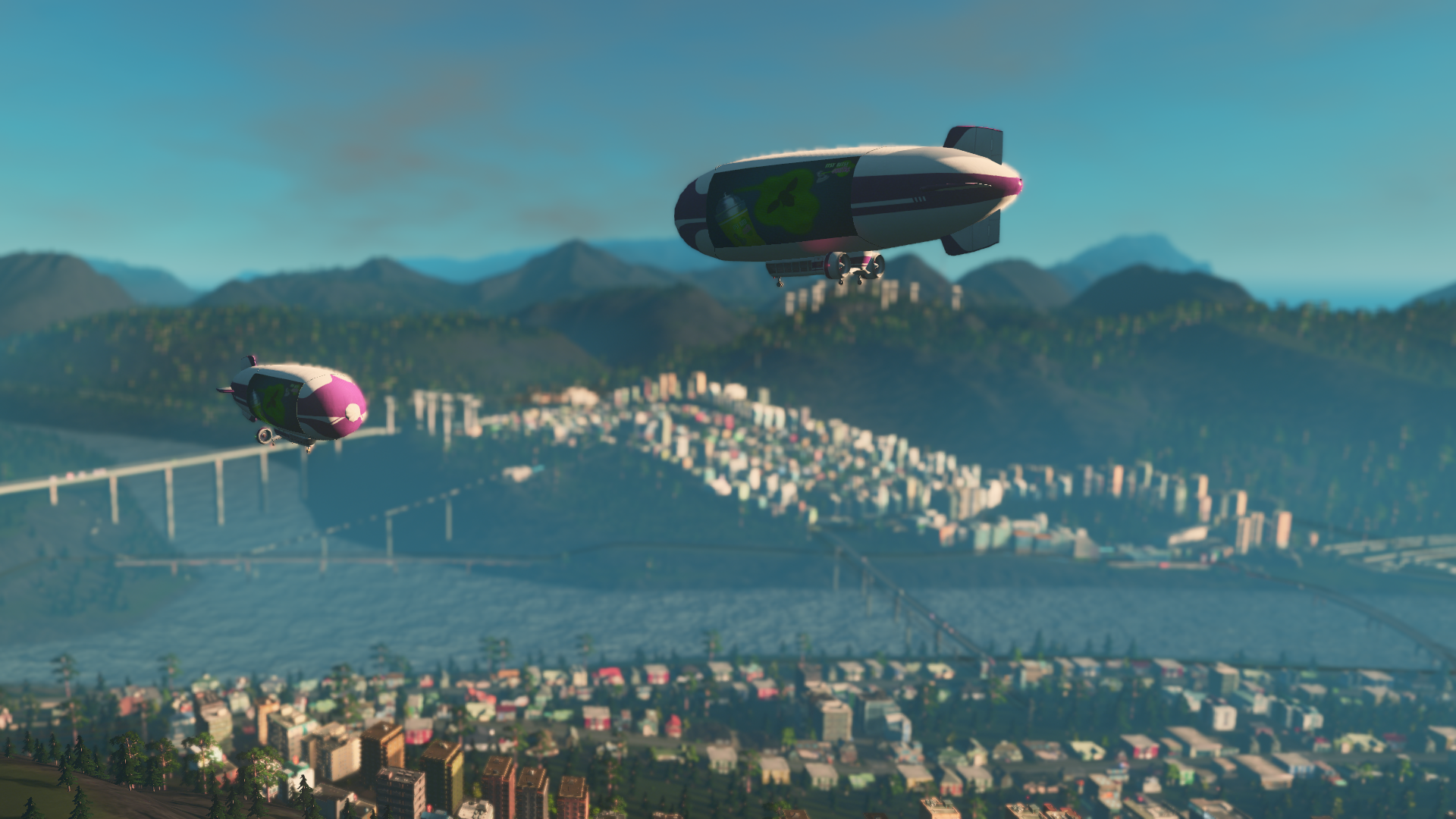
For that first hockey game, my teammate was so starstruck.
For Bryan "Gula" Shannon, modding Cities: Skylines was something he stumbled into. After successfully completing a game design course at Florida's Ringling College of Art and Design, the self-confessed city-builder obsessee interned at Maxis and was thereafter offered his dream job: full-time employment to work on 2013's then unreleased SimCity. The beleaguered city-crafting sim's inauspicious launch however resulted in Shannon parting ways with Maxis shortly after, and, amid the chaos of supporting his girlfriend and her mother following complications with surgery, led to him finding solace in designing Cities: Skylines mods.
What started out small and working for free would eventually see Shannon establishing a Patreon, where those interested could allocate donations towards each Cities asset Shannon created—something up to this point he was doing for free. "This was before the whole thing began," he says of when he identified a market for making money from modding. Far from reskins, Shannon's work is built from scratch and he was one of the first to upload buildings following the launch of the game's modding tools.
"My girlfriend was a Twitch streamer for a while when I was working," he continues. "She's actually working at BioWare right now and is doing the same things that I do, creating 3D assets and building worlds and stuff like that. Before that, when she was looking for a job, I'd noticed people were donating money. I'd also noticed other people were making money for creating assets for games and I thought it was a way that I could support this same idea. I was getting like $8 per asset and this was like a free chipotle burrito! I was happy with that.
"I then made a joke with my girlfriend: wouldn't it be funny if Kotaku reached out to me to do an article, and literally the next morning when I woke up I had an interview request. I did the interview and the very next day I'd jumped to $575 per asset—and this was almost overnight. I thought myself, 'alright, I guess this is a serious thing now.' From there it hardly stopped—I think it peaked at about $875 or $890 or something—and that was life for a short while."
The biggest gaming news, reviews and hardware deals
Keep up to date with the most important stories and the best deals, as picked by the PC Gamer team.
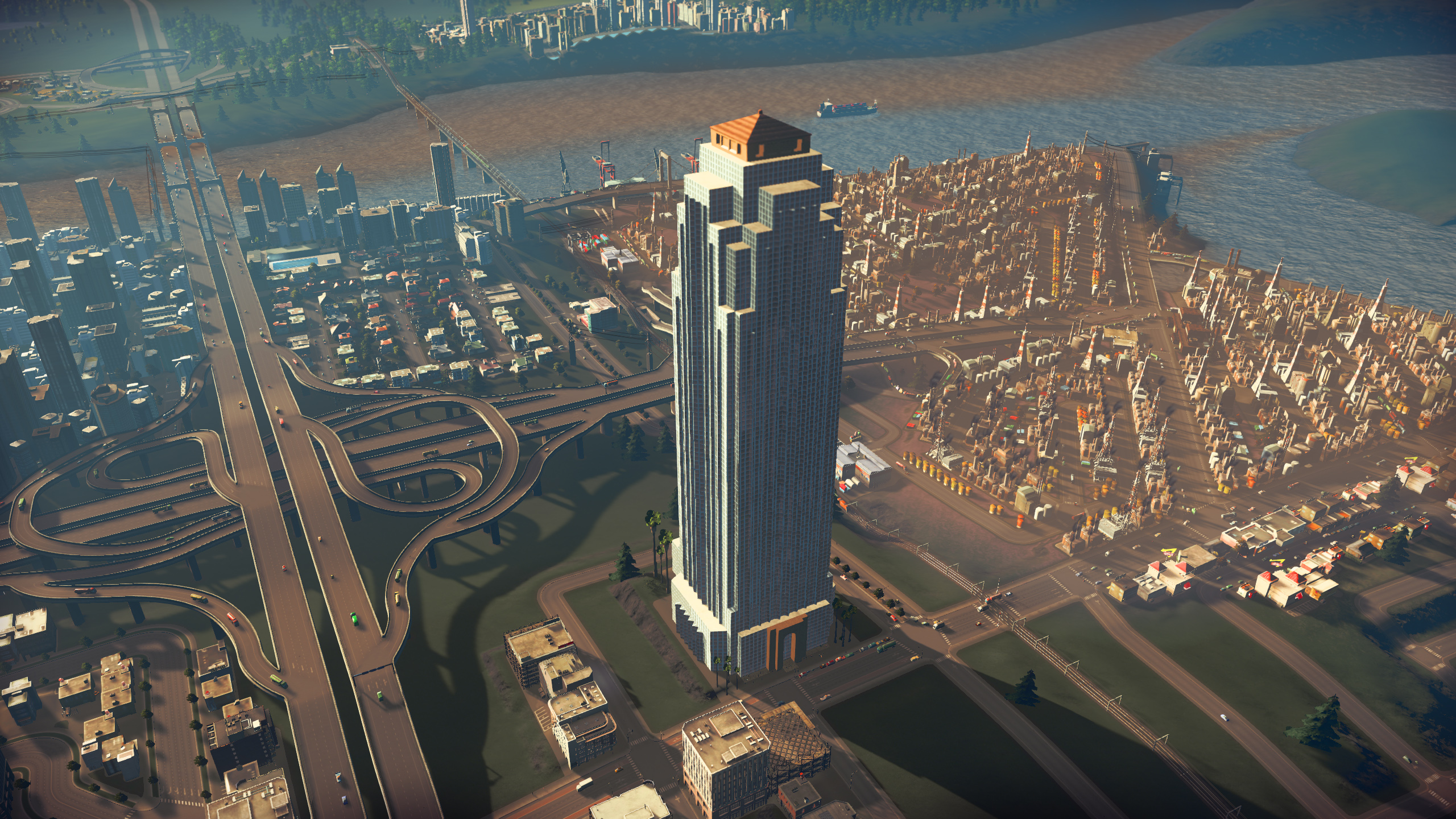
After interviewing with Bungie and then Hi-Rez Studios off the back of his Cities: Skylines input, Shannon landed a job at Arkane and has spent the last year working on the Dishonored 2 developer's incoming sci-fi shooter Prey. "When I first got onto the team it was supposed to be a surprise," says Shannon. "But I'd done a little bit of research and I think in a way if you had dug around in some forums you could sort of see what they were working on. The most astounding thing to me is when I first got there the game felt done."
Prey is due May 5, 2017 and if Phil and James' early impressions are anything to go by, Arkane could be onto something special. Shannon adds: "Our level designers are great. I'm working with people who've worked on Deus Ex and BioShock and things like that. I loved those games and to be able to work and support those guys is brilliant. They come up with an idea and I have to make it look pretty is the path I'm on just now."
Building new lives
Matt "Shroomblaze" Crux is a household name within the Cities: Skylines mod scene. Having built close to 450 buildings, fixes, and assets his catalogue boasts everything from towering skyscrapers to centimetre-high Boletus mushrooms, and his Steam Workshop follower count exceeds 4,300 people. Raised on consoles such as the NES, its Super successor, the PlayStation 2 and the N64, Crux latterly graduated to PC by way of SimCity 2000, The Sims and The Sims Online. He eventually discovered World of Warcraft—a game he reckons has since stolen ten years of life, and accentuated a five year depression. Cities: Skylines let him break free of a disheartening cycle.
"Four years prior to discovering Cities my family threw out paintings that I'd been working on, because they're very Christian and they thought I was being evil or demonic. They said I was too new age," Crux tells me. "In turn, for four years I went through an endless circle of depression, watching TV, playing WoW, not doing much in my room. Cities finally let me see my creative side, it let me be more creative again, it let me mod and let me start to get into being an artist again. It let me return to having fun."
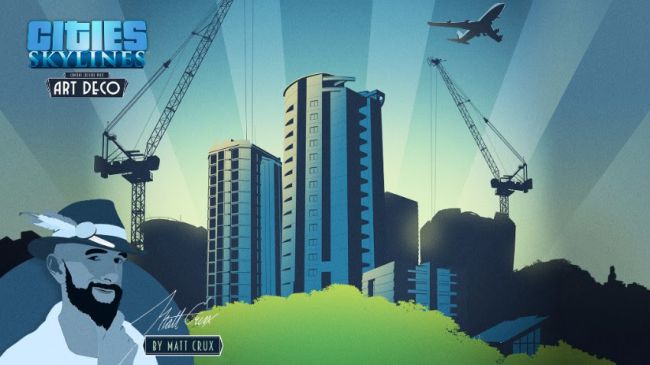
At the time, Crux had no prior 3D modeling or modding experience, but quickly noticed how active the Cities community was in this regard. He decided to teach himself how to craft props and items by virtue of friendly Q&A within the game's forums and a great deal of trial and error. The end products spoke for themselves: pretty in-game effects that other folk could and, crucially, sought to add to their games—in turn giving Crux a distinct sense of purpose.
"The fact that I could make colourful objects that I can not only use in my game but can also help people have better games really helped lift my depression. I liked the comments, the appreciation for what I was doing, the fact that this gave me worth," he adds. "Before that, I felt like I was worthless, that nobody cared for me. My whole family, I felt, didn't give a shit about me and so it felt like I was doing something worthwhile. I was back doing my art again and I was also aware I was helping other people make their games better. I loved making little things for the city and in turn seeing them come to life, especially vehicles, where I'd make a 3D object and then watch it drive around. Yeah, I loved bringing things to life."
The more Crux produced, the faster his profile grew within the Cities' community, to the point where his inbox was full of player requests for what to craft next. This level of interest did not go unnoticed by developer Colossal Order and publisher Paradox, who last year—out of the blue—reached out and asked Crux to work with them as part of a community-sourced project.
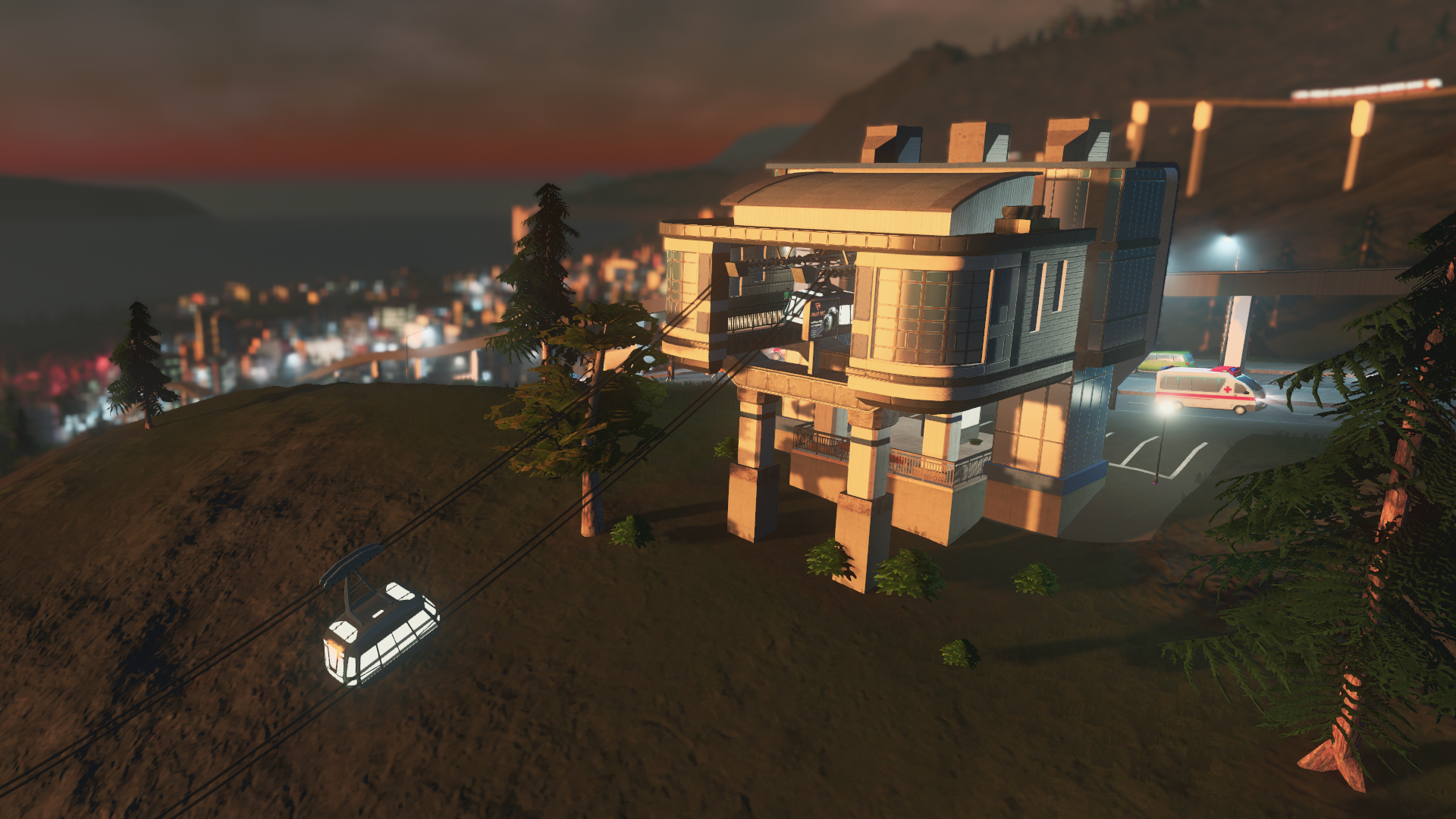
Cities finally let me see my creative side and let me start being an artist again. It let me return to having fun.
Working from home in Phoenix, Arizona, the result was last year's Art Deco pack—a project which saw Colossal and Paradox covering Crux's production costs, and also splitting sales revenue with the creator once the DLC was released.
"When I first got the email, I saw it and didn't respond for an entire week," says Crux. "In my state, in my depression, I felt like I had a lot of negative energies in my head. I thought I shouldn't even contact them, but after a week, I thought: let's see what they have to say. When I eventually found out about all the details, I was like, woah, this is great!"
Crux says it'd have been a "travesty" had he decided to ignore the email, not just from a financial perspective, but also because he believes taking on the Art Deco project helped him conquer his depression and rediscover his creative side. While he's since scaled back his Cities modding involvement to focus on his artwork, by crafting miniature versions of his real-life artwork and designing in-game easels Crux has found the perfect way to combine both of his life's passions.
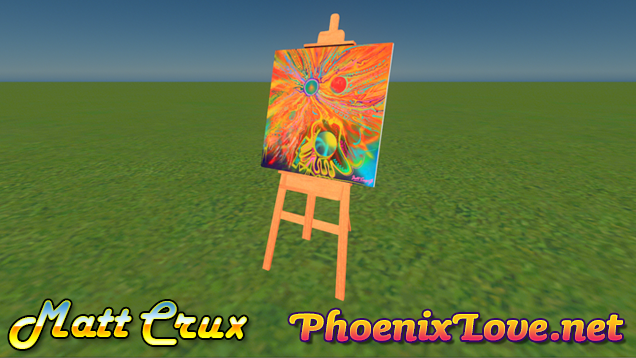
Shannon's path is perhaps more orthodox, but nevertheless owes much to the Cities: Skylines mod scene. He tells me he can't express how happy he is working at Arkane—something he describes as "a very, very, very positive experience"—and that he wouldn't have landed where he is now without the city-builder.
As a community, Shannon reckons it's second to none and is brimming with novel anecdotes and warm stories of teamwork and camaraderie. With this in mind, he recalls just how taken aback an amateur ice hockey teammate was upon discovering the esteemed Cities: Skylines modder 'Gula' was in fact Shannon himself. He laughs: "For that first game, my teammate was so starstruck."
Crux echoes a similar line, suggesting the overarching desire to build has a metaphorical effect on the community itself. "There are so many games out there that are destructive and Cities is the opposite," he says. "In those games it's all about conflict and nasty exchanges, there's so much negativity and it becomes hateful. The community in Cities is very positive and it's a creative platform to express who are you and a chance to be artistic. As a modder, the community is so supportive: the coders, the modellers, they all come together.
"If you're thinking about becoming a Cities modder, I for one absolutely support people doing that because it's a fun thing that creates great bonds between people—something which feels rare in videogames today."

